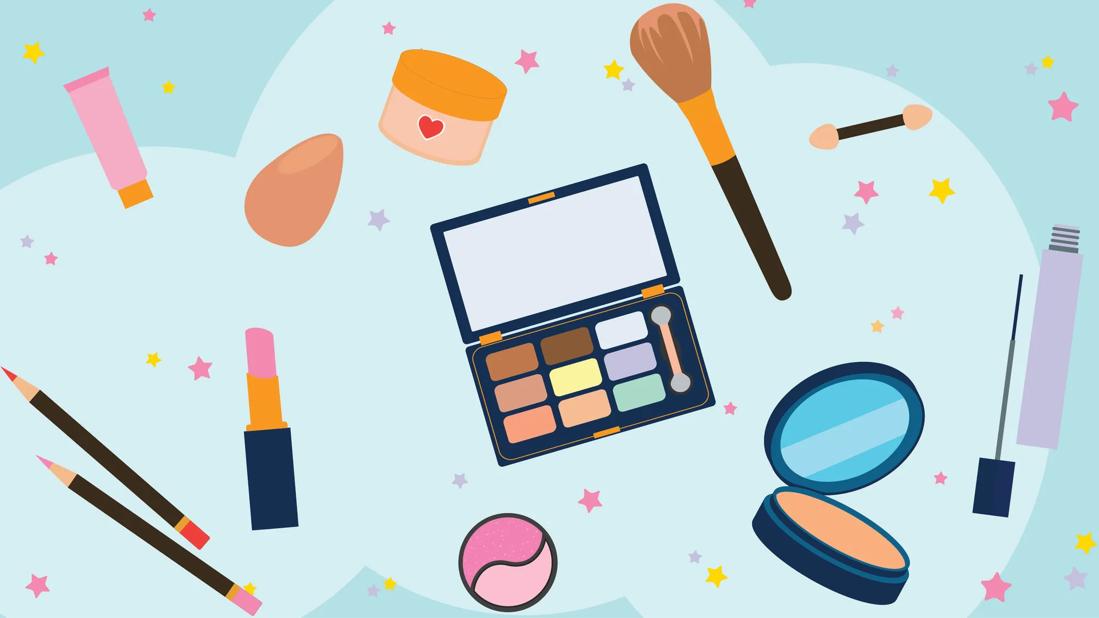Changes in texture, smell, color and performance are signs it’s time to throw the cosmetic item away

Beauty may last forever, but makeup has an expiration date. So, if you have a long-held lipstick rolling around at the bottom of your bag, it might be time to throw it away.
Advertisement
Cleveland Clinic is a non-profit academic medical center. Advertising on our site helps support our mission. We do not endorse non-Cleveland Clinic products or services. Policy
Dermatologist Shilpi Khetarpal, MD, explains why makeup doesn’t get better with age and how to tell whether it’s gone bad.
Most makeup has an expiration date located on the back or bottom of the item. Look for a small icon that looks like an open can with a number inside it. If it says “24m,” it’s good for two years (24 months) after opening it. If it says “6m,” you should throw it away after using it for six months.
But not every cosmetic has an expiration date. So, you’ll want to keep an eye out for changes in smell, texture, color and performance that indicate that it’s time to throw it out. (More on that later.)
It’s also important to store makeup correctly. Think about it like food or other perishable items: Over time, the ingredients start to break down, making it less effective and, in this case, increasing your risk of irritated skin.
“Unopened, well-formulated makeup is stable for years at room temperature,” says Dr. Khetarpal. “When you open it, ingredients start to oxidize or degrade because they’re exposed to the air.”
An expiration date is telling. But if there isn’t one, pay close attention to any changes in your makeup, including how it affects your skin.
Advertisement
Dry makeup products (like eyeliner pencils and powder foundation) tend to last longer than “wet” products (like concealer, liquid eyeliner and some types of eyeshadow). That’s because the moisture in wet products helps bacteria and mold grow faster.
If you notice changes in your makeup or the way your skin reacts to it, throw it out. But in general, Dr. Khetarpal recommends these guidelines for how long you should keep makeup:
Some makeup should be swapped out sooner if you’re dealing with a health issue that could affect them.
“Our lips have a lot of bacteria on them, so lip products get contaminated quickly,” adds Dr. Khetarpal. “If you get a cold sore, stop using these products and start fresh. You should do the same for mascara and other eye products if you have an infection like pink eye.”
Bacteria and mold can grow in your makeup at alarming rates, especially when heat and humidity are involved. One study found that 90% of used makeup products contain an abundance of bacteria, including E. coli.
“When you pump something out of a bottle, like certain types of foundation, you’re not contaminating it every time you use it,” clarifies Dr. Khetarpal. “But when you touch your makeup, then your skin, then the makeup again, you’re adding bacteria to the product.”
Makeup brushes can hold onto bacteria, too. And if there’s bacteria built up in these products, you may experience:
“Clean brushes or sponges at least weekly because they’re touching your powder and skin every time you use them,” advises Dr. Khetarpal. “Weekly washing minimizes the bacteria that build up. So, use shampoo to wash them and allow them to air-dry completely.”
Beauty may be in the eye of the beholder, but you don’t want to end up with a lingering eye infection. As long as you’re using makeup, pay attention to the expiration date and any potential changes to the way it looks or feels. It’s always safer to toss it than to risk it!
Advertisement
Learn more about our editorial process.
Advertisement

It’s a great disinfectant for around your home, but not for your skin

Strengthening your skin barrier, simple routines and minimizing products are ongoing, popular trends

Moisturizing, running a humidifier and adjusting your showers may help keep itchiness and irritation at bay

Glycolic acid benefits skin tone, texture and pigmentation by exfoliating dead skin

Some gentle soap and warm water go a long way when you’re washing these cosmetic tools regularly

New formulas are less drying and contain water-based and skin-loving ingredients

At a minimum, in the morning, apply a cleanser, followed by a moisturizer and sunscreen, in that order

The convenient option is good for touch-ups, but it shouldn’t replace your traditional sunscreen

Wearing a scarf, adjusting your outdoor activities and following your asthma treatment plan can help limit breathing problems

Your diet in the weeks, days and hours ahead of your race can power you to the finish line

When someone guilt trips you, they’re using emotionally manipulative behavior to try to get you to act a certain way